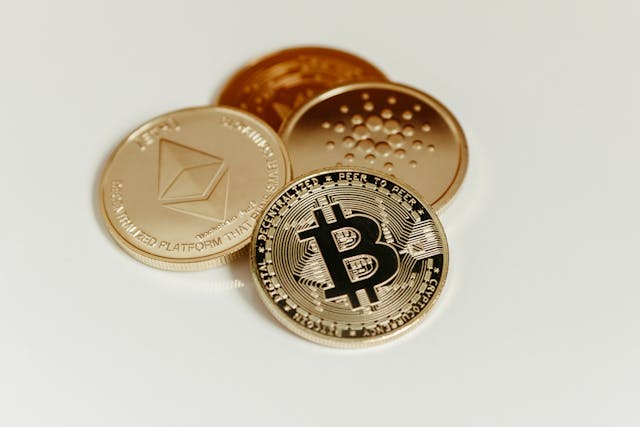Write Us: hello@ali5.org
Simple Ways to Save Money on Rising Grocery Prices
Grocery bills keep climbing, but your spending doesn’t have to. Learn practical, no-stress ways to save money without sacrificing quality or nutrition.

Grocery shopping in 2025 feels like a wallet workout. Prices keep creeping up, and even basics like eggs, flour, or vegetables are noticeably more expensive. If you’ve found yourself doing mental math in the store more than usual, you’re not alone.
But here’s the thing: while you can’t control inflation, you can control how you shop. With a few smart strategies, you can still feed yourself and your family well without blowing your budget.
Let’s break down practical, no-nonsense ways to save money on groceries, without cutting out the good stuff.
🧾 1. Make a List and Stick to It
You’ve heard this before, but it works.
Impulse buys are budget killers. Walking into a store without a plan usually leads to picking up things you think you’ll use, but don’t. Before you shop, take 5–10 minutes to check your fridge, freezer, and pantry. Then make a list of what you actually need for the week.
Stick to that list. It’s your line of defense against overspending.
🧠 2. Plan Meals Around What You Already Have
Food waste is money waste.
Before heading out, ask yourself: What can I make with what’s already in the house? If you have half a bag of rice, frozen chicken, and some vegetables—boom, you’ve got dinner. Build your grocery list around filling in the gaps.
This helps reduce waste, saves money, and keeps you from overbuying.
🛒 3. Don’t Shop When You’re Hungry
Sounds silly? It’s not.
Shopping on an empty stomach leads to cravings, and cravings lead to snacks and junk you didn’t budget for. Have a meal or snack before you go. You’ll make better decisions and spend less.
🥫 4. Buy Store Brands and Generics
Brand names are mostly marketing. In many cases, store-brand items are made in the same factories with near-identical ingredients.
Try generic versions of:
-
Pasta
-
Flour
-
Rice
-
Canned goods
-
Dairy products
-
Spices
Most of the time, you won’t notice a difference, except when you check out.
📦 5. Buy in Bulk (Smartly)
Bulk buying only saves money if you actually use what you buy.
Staples like rice, lentils, oats, and flour are great bulk purchases. They store well and have long shelf lives. The same goes for oil, toilet paper, and cleaning products.
But avoid bulk-buying things like fresh bread or snack packs if they’ll just go stale or be eaten too fast.
🥶 6. Embrace Frozen and Canned Foods
Fresh is great, but frozen and canned are cheaper, last longer, and can be just as nutritious.
Great frozen picks:
-
Mixed veggies
-
Fruits for smoothies
-
Fish fillets
Best canned picks:
-
Beans
-
Tomatoes
-
Tuna
-
Corn
They’re perfect backups for busy nights and stretch your meals further.
🍎 7. Shop Seasonally and Locally
Produce that’s in season is cheaper and tastes better.
In-season items don’t require long-distance shipping or artificial ripening, so stores sell them for less. Check what’s growing locally, whether it’s mangoes in summer or carrots in winter, and plan meals around those items.
Shopping from local farmers or markets can also be cheaper than supermarkets, especially toward the end of the day.
💳 8. Use Rewards, Coupons & Cashback Apps
Every little bit adds up.
-
Join loyalty programs at stores like Carrefour, Metro, or Imtiaz.
-
Use apps like Savyour in Pakistan or Rakuten/Ibotta elsewhere.
-
Look for weekly deals on grocery store apps or websites.
Even saving a few hundred rupees a week adds up to thousands over a year.
🥘 9. Cook Once, Eat Twice
Double your portions, not your workload.
Make larger batches of food and eat leftovers for lunch or dinner the next day. Casseroles, soups, curries, and pasta dishes are perfect for this.
This saves time, cuts down on waste, and keeps you from ordering last-minute takeout when you’re too tired to cook.
🧊 10. Store Food Properly to Avoid Spoilage
You buy it, but do you actually eat it?
If food spoils before you use it, that’s money straight in the trash. Learn how to store fruits and veggies correctly. Keep your fridge at the right temperature. Label leftovers with dates.
Tip: Store herbs in a glass of water like flowers, and keep greens wrapped in paper towels to absorb moisture.
🧾 11. Try a “No-Spend” Grocery Week Once a Month
It’s simple: challenge yourself to make meals only from what’s already in your home.
You’d be surprised how many meals you can whip up from forgotten items in your freezer or the back of your pantry. It’s a great reset, and it pushes creativity too.
🍞 12. Reduce Snack and Processed Food Purchases
Snacks are expensive and don’t fill you up.
That bag of chips or soda might seem cheap, but those little “extras” add up fast. Focus more on ingredients that build real meals like grains, protein, and vegetables.
You’ll save more and eat better.
Final Thoughts: It’s About Smarter Choices, Not Sacrifice
Saving money on groceries doesn’t mean cutting out the things you enjoy. It’s about being more mindful of what you buy, how you store it, and how often you waste it.
Start with small changes. Plan a little more, waste a little less, and look for value, not just price tags. Over time, these habits become automatic. And when they do, your weekly total at checkout won’t sting nearly as much.







